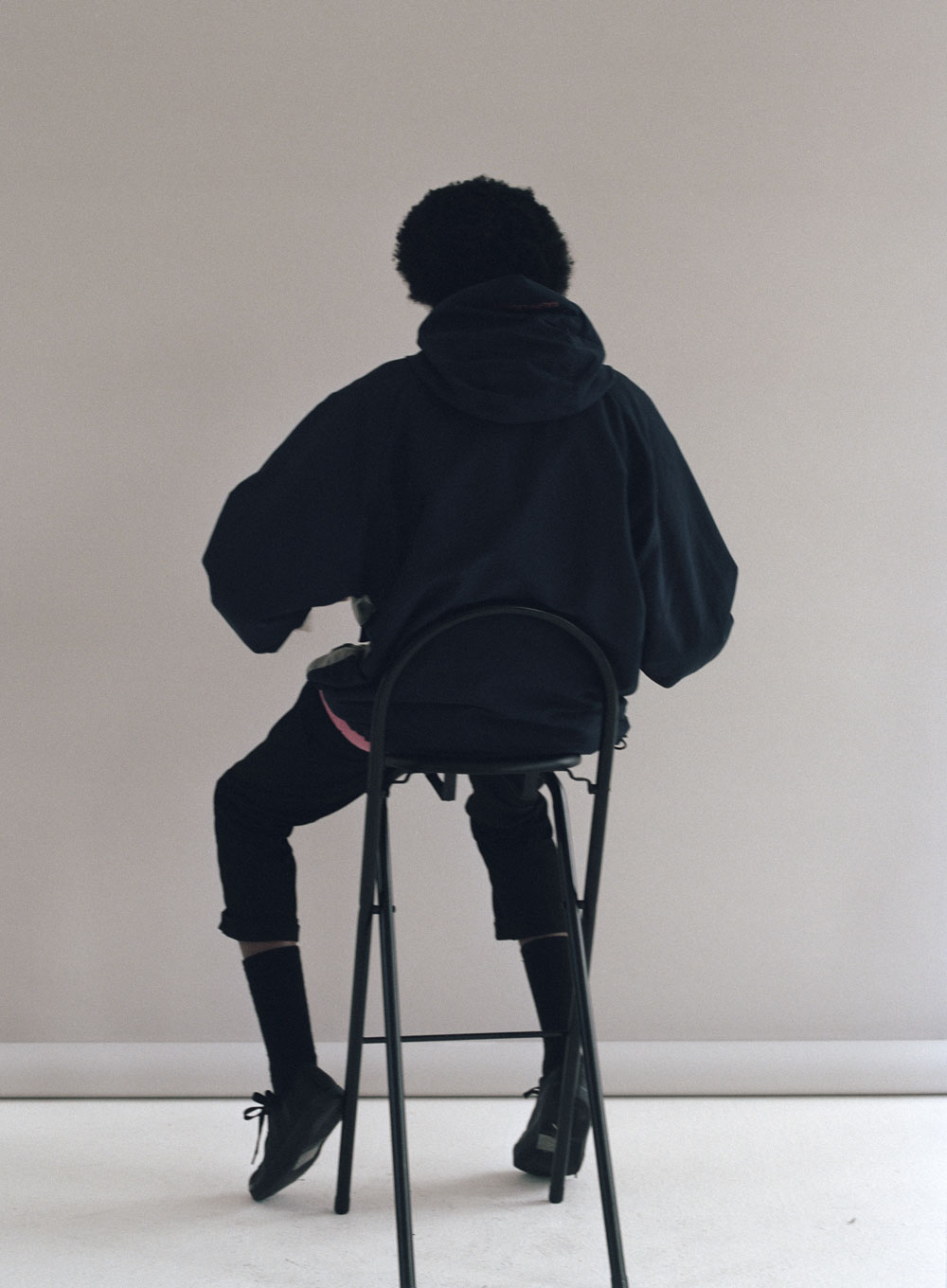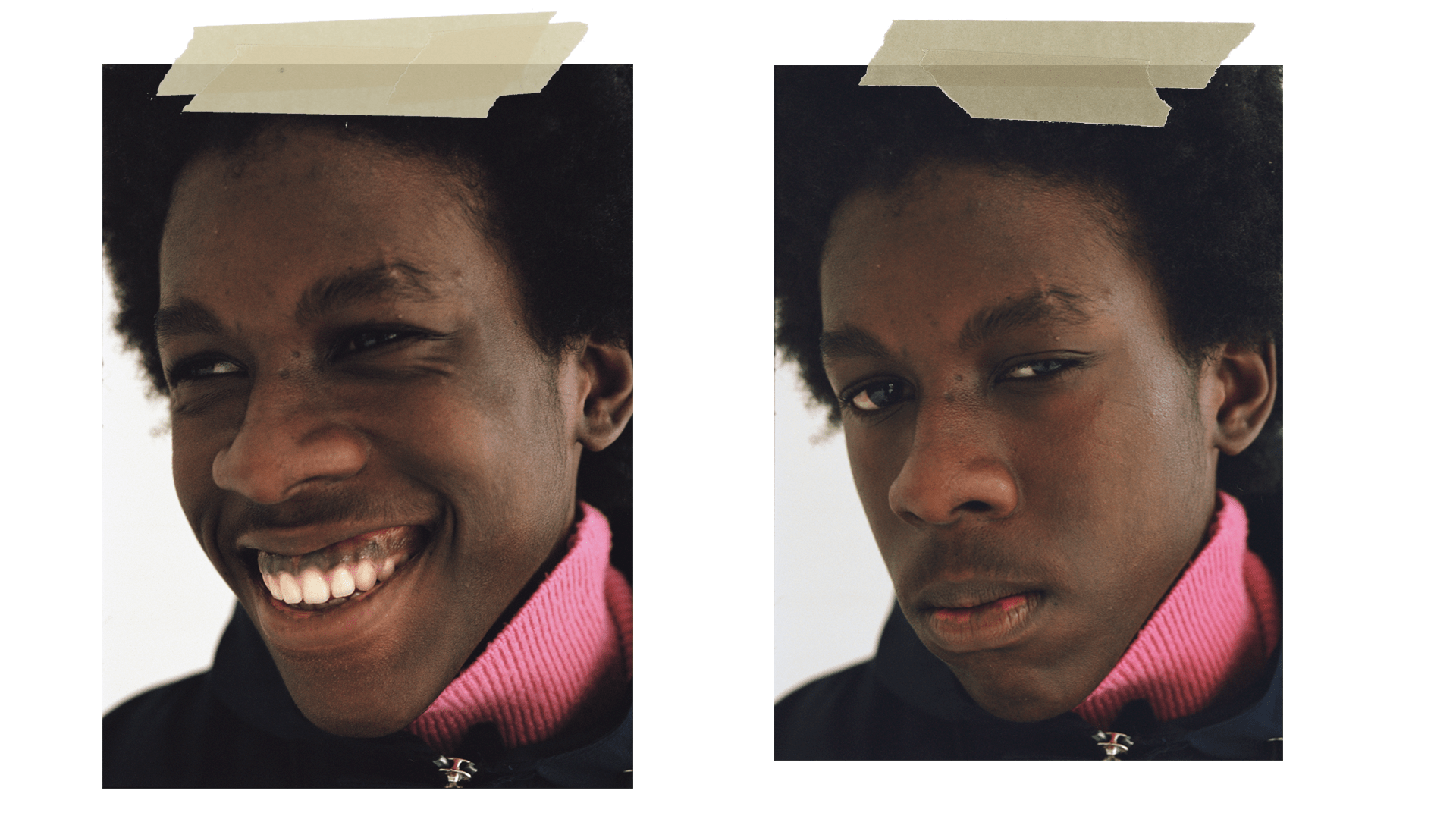This article originally appeared in The Sounding Off Issue, no. 350, Winter 2017 as part of our Music Class of 2018 portfolio.
Isaiah Hull isn’t a musician, as such. The 19-year-old Mancunian doesn’t walk around with a guitar or an 808 drum machine under his arm. For Isaiah, words are an instrument in themselves; the young poet’s performances are imbued with a musicality that betrays a teenage love of grime — the right intonation here, the slight pause there. Little wonder he was picked to perform ahead of Skepta at Radio 1’s Big Weekend in 2016. “I see grime as poetic,” he says. “It’s the same skillset, just different avenues.” Isaiah gravitated to poetry when he discovered Benjamin Zephaniah at the age of nine, and was encouraged by his mum to join the spoken word collective Young Identity a couple of years later. “I’ve been doing poetry for a relatively long time now, but it’s only recently that I’ve actually considered myself to be a poet,” he explains. “I say that because if there wasn’t poetry, if there wasn’t an audience, I’d still be writing. I’d be a filmmaker, I’d be a scriptwriter, I’d be a novelist. Writing is my passion, regardless of the medium.” What is it that he loves about it? “There’s a certain satisfaction that you get that you can’t even write about,” Isaiah says. “That journey of trying to figure out how to articulate something in your head. It’s how I imagine a dancer feels when they convey a story the right way to an audience. Articulating something that’s intangible in the right way physically on page.” He pauses. “It’s mad.”
What music did you listen to growing up?
In terms of, like, Mancunian grime, Shifty was the guy. And there was Blizzard, Hypes. I used to listen to Trilla from Birmingham. Sox. This guy called MC Romes and AB Ice. It was literally like, they’d grow up in the area and you would know them. They’d have a track and someone would Bluetooth you it. It’d be that kind of thing.
So how come you fell into poetry instead of rapping?
It’s weird. I’ve got like a hidden past in music. I was 11 and my friends had a group and we did make some grime tracks. But I was doing poetry a year before that. At my primary school, I was known for poetry. So I did do music, but it was just a hobby. Then, as I took poetry more serious, I took music less serious. And that group then evolved into… They were called the Grime Reapers. That was the name! So I kind of fell out of that, but they carried on.
Were you encouraged by your teachers?
100%. It was homework one day just to write, like, three poems and bring them in. And they said they were good. I had no confidence in primary school, but because of that positive reinforcement I would just keep bringing them poems. One of them they put on the wall of the primary school and I thought, ‘Oh, that’s really good. That’s maybe something I can carry on doing.’ Then I did a ‘Your Primary School Has Talent’ kind of thing. My mum told me to perform but I didn’t win and I was really discouraged. I was like, ‘Oh, I’m gonna stop doing it, I’m gonna give up.’ But my mum didn’t let me. You give up loads of stuff as a kid but that was the one where she was like, no, I’m not letting you. She found somebody that knew Shirley May at Young Identity, a contact for her and I just went from there. I was 12, I think.
How important is the performance side of poetry?
It’s weird because I feel like I’m a natural writer, but I’m not a natural performer. I think I’m lucky in a way that people have liked my performances. But really I could do without them. I fall out of love with performing, but I don’t really fall out of love with writing that much. It’s the expectation.
Do you see what you do as inspiration or craft?
I think it’s a bit of both. The initial spark, the first few lines, might come to me when I’m on the bus or the way to the bus or something. Then the editing is definitely the labour. Sat down at like 2am trying to figure out which line should come before which, and which word has the right intonation and all that. But the initial lines and ideas will come just living life. Living and walking around.
What advice can you give to any young poets out there?
Please don’t watch YouTube videos with a million views and think that’s what poetry is. Poetry needs more unique people, more unique voices. Don”t learn from YouTube, don’t learn from social media. Don’t learn from what’s popular in poetry because it’s not actually what, in my opinion, is true to poetry. Perform if you want to but write more. I think that’s important, to write more than you perform. And just be different! I want more difference. More difference in poetry.

Credits
Photography Ronan McKenzie (Collage by Kristina Britton)
Styling Julian Ganio
Hair Naoki Komiya at Julian Watson Agency
Make-up Ammy Drammeh using M.A.C Cosmetics
Styling assistance John Handford and Nathan Henry
Hair assistance Kazuhiro Naka
Make-up assistance Grace Ellington
